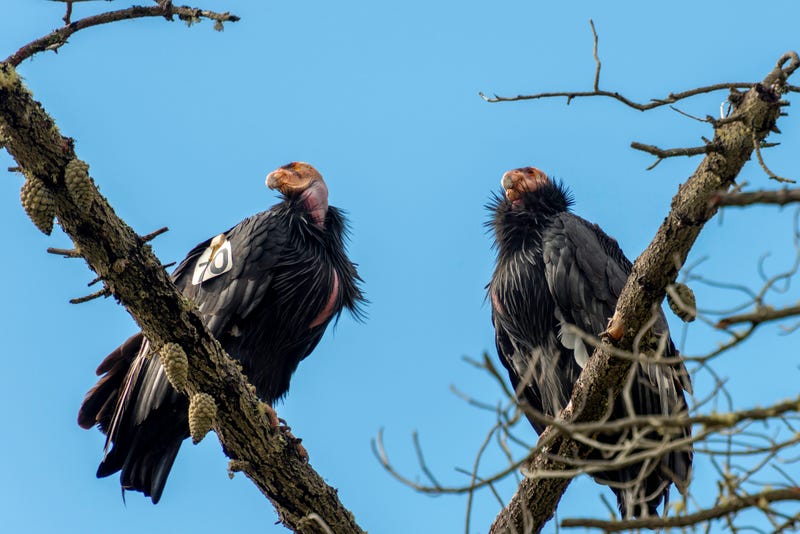
A team of zoologists affiliated with the San Diego Zoo announced Thursday that condors—large vultures native to the Americas—can reproduce without having sex.
Researchers made the surprising discovery, reminiscent of the all-female dinosaurs featured in Jurassic Park, after genetic tests revealed two condors born in captivity had no biological fathers.
Most creatures inherit two sets of genes from their parents, one from a mother and the other from a father. Researchers observing San Diego’s breeding condors could not find evidence the captive chicks had DNA from a father.
The phenomenon, known as parthenogenesis, has been observed in certain species of insects, fish, and reptiles. Some cases among birds have also been documented—but mostly among smaller species, like chickens and pigeons.
The discovery is significantly more groundbreaking as condors have historically been endangered.
By 1982, there were only 22 California condors left in the world. That number has since grown to 525, with 306 living wild across California, Arizona, Utah, and northern Mexico. That population bounce-back is largely due to a captive breeding program run out of the San Diego Safari Park, affiliated with the zoo.

“I thought it was pretty remarkable,” Kevin Burns, an ornithologist at San Diego State University, who was not involved in the study, told The San Diego Union Tribune. “That raises the issue that we should be looking for this more, I think.”
Some bird experts have speculated rare species that live independently, might benefit from reproducing asexually when they can’t find a mate. Condors can claim territories hundreds of miles wide, far from other members of its species.
“One of the meanings of this is that we might think we understand life, but we shouldn’t take it for granted,” said Dr. Oliver Ryder, director of genetics for the San Diego condor project. “There may be more going on out there than we know about.”

